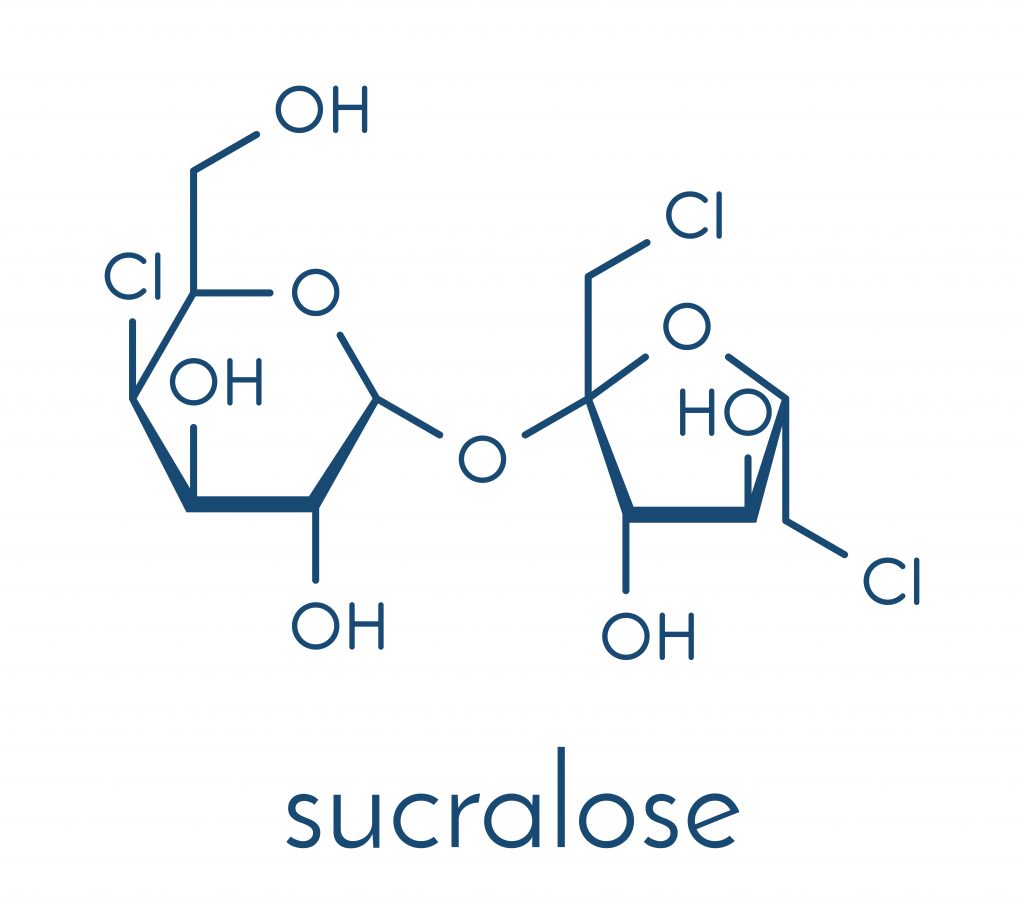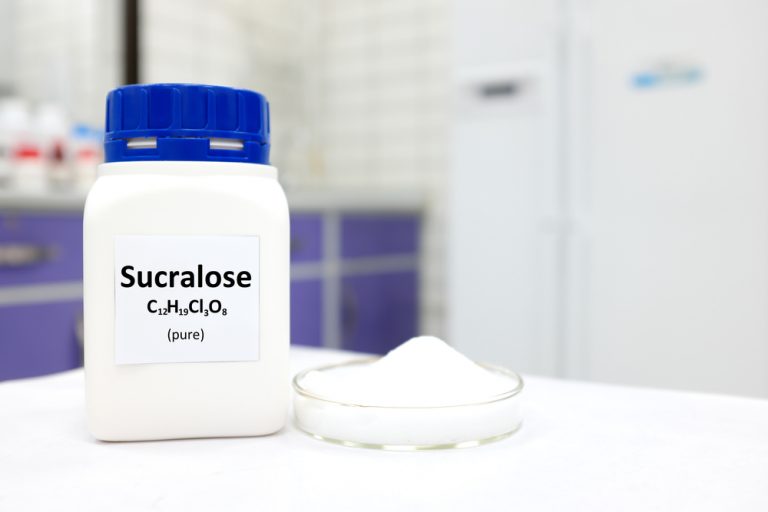Sucralose is an artificial sweetener - a derivative of sucrose (table sugar), in which three hydroxyl groups have been replaced by chlorine. This substitution makes sucralose about 600 times sweeter than sugar. This sweetener is not digested nor metabolized in 85% and is excreted in its native form. The remaining 15% is digested, but no energy is produced in this process, so the caloric content of sucralose is 0 kcal.
Properties of sucralose
Sucralose is perfectly soluble in water, can withstand temperatures up to 119 Celsius degrees and a wide pH range, hence it can easily be used in food, drugs and dietary supplements. In addition, it does not leave any unpleasant aftertaste. However, it should not be heated above 120oC as it breaks down into harmful chloropropanols.
Sucralose was first obtained in 1976. The European Union's Scientific Committee on Food (SCF) approved this artificial sweetener for use in food in 2000. Sucralose as a food additive is designated with the E955 symbol.
The acceptable safe daily dose of sucralose has been set at 15 mg/kg body weight by organizations such as EFSA (European Food Safety Authority), JECFA (Joint FAO/WHO Expert Committee on Food Additives) and SCF.

Sucralose uses - what is E955 good at?
The properties of sucralose, most notably its enormous sweetness compared to sugar, have determined its popularity in products dedicated to weight loss and diabetics. It is most popular in the United States, where it is sold in the form of Splenda sweetener. There we can find sucralose in medicines or beer.
Sucralose in diabetes - does it increase the blood sugar level?
At the beginning of the 20th century, sucralose seemed to be an ideal solution for diabetics. It made it possible to eat products with a sweet taste while excluding sugar, which had a negative effect on disease control and caused severe glycemic fluctuations. This artificial sweetener is calorie-free, and the GI of sucralose is 0 because it does not affect blood glucose levels. It also does not raise insulin levels.
Sucralose on a diet - fattening or slimming?
It would seem that sucralose is the perfect way to lose weight. It provides no calories and allows you to eat sweet things. However, it turns out that sweetness without consequences does not exist. As with other zero-calorie sweeteners, it has been shown that long-term, it does not reduce calorie intake and does not promote faster weight loss; in fact, it promotes overconsumption and sugar overeating. Why does this happen?
The brain is evolutionarily accustomed to the fact that sweet taste is associated with providing energy from simple carbohydrates. When the sweet taste receptors are stimulated, a whole cascade of reactions begins, just like when sugar is consumed. The body waits for a source of energy, but this does not happen. So the mechanism that makes us want to eat something starts to work, even though physiologically we are not hungry. It has been postulated that sucralose may contribute to weight gain. As of today, it is certainly known that it does not help you lose weight.
Sucralose side effects - carcinogenicity and side effects
To the question Sucralose or aspartame, it would be best to say - neither. Both substances are artificial sweeteners that are not neutral to the body.
The harmfulness of E955 is an issue that is difficult to assess unequivocally. It is certainly known that sucralose has never been shown to be carcinogenic. It does not cause cancer. However, what about overall health? The side effects of long-term consumption of sweeteners can be very different. Therefore, it is better to avoid sucralose during pregnancy. It is currently suggested that sucralose may:
- affect the functioning of metabolic pathways
- activate genes that affect weight gain
- contribute to an increased risk of heart disease, type II diabetes and metabolic syndrome
- metabolic syndrome
- adversely affect the intestinal microflora
Keep in mind, however, that extensive scientific studies on large groups of people are needed to confirm these theses.






